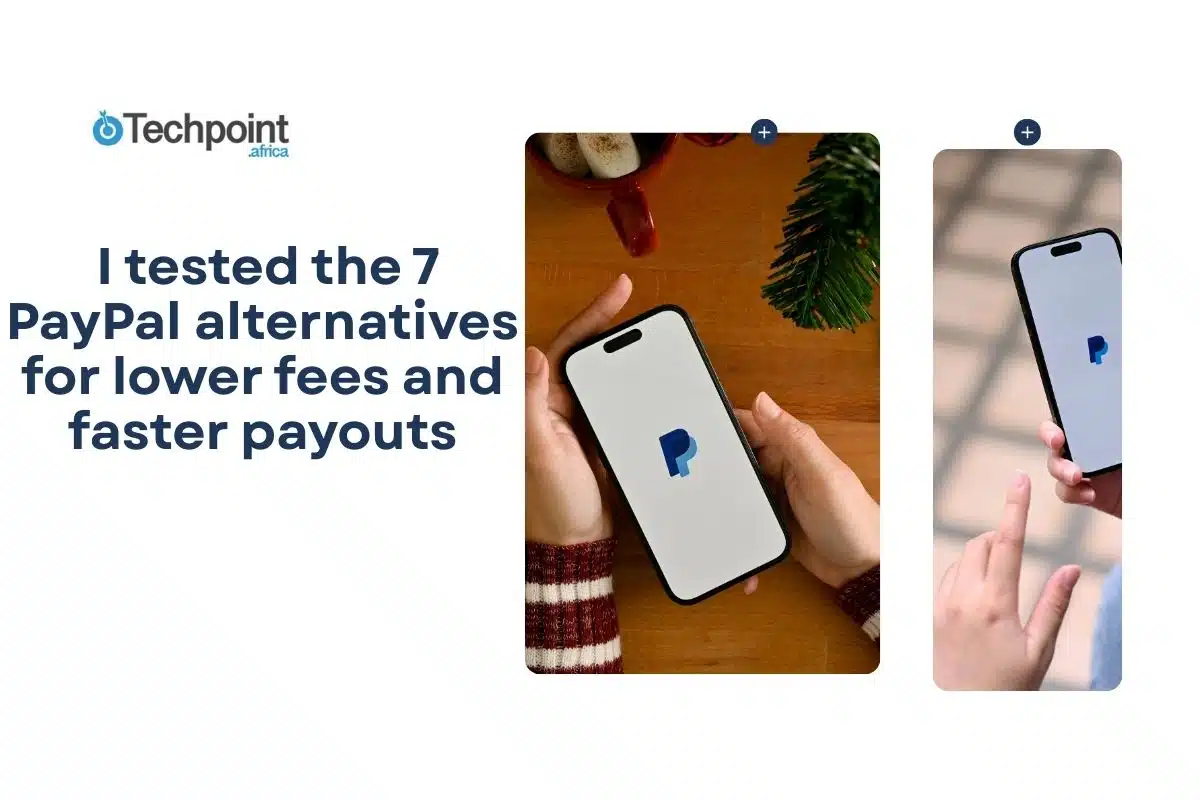You know that feeling when you unwrap a gift and find another gift card right after you just bought the same thing?
Around the world, shoppers buy billions of gift cards, making them one of the most popular presents. But when it comes to returns, gift cards don’t follow standard refund rules. Most people assume you can just walk into the store and say, “Hey, can I get my money back?” However, the reality isn’t that simple.
So, can you return gift cards?
The short answer is that it depends. Different retailers have wildly different gift card return policies, and federal law leaves a lot of wiggle room for companies to make their own rules.
But don’t worry, I’ve done the digging for you.
In this guide, I’ll break down what you can (and can’t) do when it comes to gift card refunds, how store and state laws factor in, and a few clever workarounds for when a company flat-out says “no returns.”
Because yes, while you might not always get your cash back, you’ve got more options than you think.
TL;DR: Key takeaways from this article
- Most stores don’t accept gift card returns. Once purchased and activated, gift cards are typically considered final sale.
- Federal law protects your card’s value. For instance, the Credit CARD Act of 2009 ensures gift cards can’t expire for at least 5 years and limits inactivity fees.
- If the store won’t refund your gift card, you still have options. You can sell, exchange, regift, or donate it to charity.
Why might it be necessary to return a gift card?
Sometimes, returning a gift card is about practicality. Maybe the store isn’t in your area, or you’ve switched to shopping exclusively online, and the card is for a brick-and-mortar location. Sometimes, you already own what you’d buy with it, or the brand just isn’t your vibe anymore.
Other times, you might’ve bought the wrong card by mistake. Imagine grabbing a Starbucks card when you meant to buy Amazon. Or maybe you realized too late that you don’t want to gift it after all.
And then there’s the classic post-holiday scenario where you get multiple cards for the same store, or duplicate gifts that make one card redundant. In short, life happens, and that’s why knowing your return and exchange options can save you a ton of frustration (and unused balance).
There are also cases where:
- The gift card was different from how it was advertised, making it useless for the purpose for which it was intended.
- After you purchase a particular gift card, you discover that somewhere else offers a better deal.
What does the law say about gift card refunds?
It helps to know what the law actually says about gift cards and what’s just store policy before you rush back to the store asking for a refund. Federal law offers some protection, but most of the power still lies with the states and individual retailers.
Federal laws and regulations
The landmark Credit CARD Act of 2009 set nationwide rules for gift card consumers. It doesn’t require stores to accept returns, but it protects your card’s value.
- Expiration rules: Gift cards can’t expire for at least five years from the date of purchase or the last time funds were added.
- Fee restrictions: Inactivity, dormancy, or maintenance fees can’t be charged unless the card has been unused for at least 12 months, and even then, only one fee per month is allowed.
- Disclosure requirements: Retailers must clearly state all terms and fees (e.g., expiration dates, fees, and limitations) in writing before you buy. If they don’t, you might have legal grounds to dispute the terms.
State-specific laws
While the federal law handles the basics, state laws are where the real power lies when it comes to refunds and returns.
Here’s how some states play:
In California, according to California Civil Code Section 1749.5(b)(2), you can redeem gift cards with a balance under $10 for cash. Although gift cards, like Visa and Mastercard, that are usable at multiple unaffiliated retailers, are an exception. This rule has been in effect since January 1, 2008. That said, no law requires any business to refund customers for their gift card purchase.
Most expiration dates and fees for gift cards and gift certificates are entirely prohibited in Washington (purchased after July 1, 2004) and Oregon. Note, however, that exceptions exist for gift cards that were sold at a discounted price or as part of a loyalty program.
Some states enforce escheatment laws, meaning if you never use a card, the balance is eventually turned over to the state as unclaimed property
Store policies vs. legal requirements
The fact is that stores are only required to follow the law’s minimum standards. Many go above and beyond, but some don’t.
For instance, while stores must honor the expiration and disclosure rules from the Credit CARD Act, some retailers, such as Target and Amazon, go a bit further and let you cancel or exchange cards under certain conditions, even though they’re not legally required to.
What remains strict, however, is that policies that impose hidden fees, force short expiration dates, or deny access to remaining balances may violate consumer protection laws. Always check the fine print before assuming a refund is off the table.
Major retailer return policies on gift cards
Before you rush to the customer service desk clutching that unwanted gift card, you should know that most retailers won’t take it back. Gift cards are often considered cash equivalents, which means once they’re sold and activated, they’re out of the store’s control.
General store policies
Gift card sales are almost always final. Once purchased, you usually can’t return them for cash, credit, or exchange, even if the card is brand new and unused.
This strict policy exists mostly to prevent fraud and protect stores from financial losses, especially since cards can be cloned or resold online. So, when buying a gift card, it’s best to assume you won’t be able to bring it back.
Having said that, exceptions do exist. Some retailers make rare allowances for unactivated, damaged, or court-ordered refund scenarios. Below is a breakdown of how major stores handle returns
Typical rules and restrictions across popular retailers
When it comes to gift card returns, big-name brands tend to play it safe. Even the friendliest customer service reps usually can’t override these “no return” policies.
Department stores
- Target: All Target gift cards, prepaid cards, and specialty cards are non-refundable and can’t be redeemed for cash, except where required by law (for instance, if your remaining balance is under $10 in California).
- Walmart: Activated Walmart gift cards are non-returnable, though if there was a problem with the card during the initial transaction, cards might be refunded.
- Macy’s: Follows the same “final sale” policy, though online orders may be handled differently depending on the purchase channel.
- Best Buy: Once activated, gift cards can’t be returned or refunded, even with proof of purchase. Also, non-functional gift cards are replaced, not refunded.
Online retailers
- Amazon: Gift cards and digital codes are non-refundable once purchased. However, if you bought a defective or invalid code directly from Amazon, customer service can replace it. For cards bought from third-party sellers, you’re covered under Amazon’s A-to-z Guarantee.
- eBay: Refunds are only available in cases of fraud or fake listings. Always check the seller’s ratings and feedback before buying.
- Apple, Google Play, and Steam: All consider digital codes non-refundable, except in rare cases of technical error or accidental duplicate purchase.
- Visa/Mastercard prepaid cards: Treated like cash. Once activated, you can’t return them, but you can request refunds for purchases made using the card through the merchant directly, which will be refunded to the card.
Restaurant chains
- Starbucks: Offers refunds only for damaged or inactive cards. Active, working cards are final sale.
- McDonald’s, Olive Garden, and other franchises: Return rules vary by location or franchise owner, but in most cases, gift cards can’t be refunded or exchanged for cash.
- Local restaurants: Policies differ, but most follow the same rule of no cash back unless required by state law. Some smaller spots may offer store credit or balance transfers as goodwill gestures.
Note: Always keep your receipt or proof of purchase, especially for physical cards. While most stores won’t process refunds, that little slip of paper can help in case of fraud, balance errors, or activation problems
How to return a gift card [step-by-step]
Returning a gift card is not as straightforward as shoppers would expect. But with a little preparation and the right tone, you can improve your chances of success, or at least walk away knowing you tried every avenue.
Here’s how to go about it smartly.
Before you try
Before heading to the store or firing off that customer service email, make sure you’ve covered your bases:
- Check your receipt and activation slip. These prove the card was legitimately purchased and activated.
- Review the store or platform’s policy. You can usually find it under “Gift Card Terms” or “Returns” on the retailer’s website.
- Note return timelines. A few stores allow returns within 7–30 days, but only for unused and unactivated cards.
- Gather your documentation. Bring the original packaging, card, and proof of payment. Missing any of these can make things tougher.
The return process
- Visit the original store or website. Returns must typically happen through the same channel through which you purchased the card.
- Bring ID and proof of purchase. Some stores verify ownership before processing anything.
- Explain clearly and politely why you want a refund. Whether it’s a duplicate gift or a mistaken purchase, be honest and calm.
- Ask about alternatives. If a refund isn’t possible, request store credit, an exchange, or balance transfer options.
- Document everything. Keep receipts, chat transcripts, or email confirmations, as you may need them if you escalate later.
When stores say no
- Ask to escalate. Request to speak with a manager or contact corporate support for clarification.
- File a complaint. You can reach out to the Federal Trade Commission (FTC) or your state consumer protection office if you believe the refusal violates your rights.
- Use social media wisely. A polite, factual post tagging the retailer can sometimes prompt faster responses, but keep it civil and concise.
What can you do if returning gift cards proves impossible?
If the store won’t take it back and customer service has ghosted you, there are still several clever (and legal) ways to get your money back.
1. Sell
If you’d rather have money than store credit, selling your card is a solid option. You can either use third-party platforms or sell directly. Whichever you choose, make sure you use trusted platforms.
There are gift card exchange platforms that act like middlemen between you and interested buyers. Some examples include CardCash, Raise, Gift Card Granny, and ClipKard. You can also sell directly on platforms like the Facebook Marketplace, Craigslist, Reddit, and eBay.
2. Exchange
Maybe what you want is not cash, but a card for a place you actually shop. Platforms like CardCash and Raise also offer swap options, where you can trade your unused card for another retailer’s.
Or go old-school and post on social media or ask friends if they’re open to a trade. For example, swap your Steam card for someone’s Amazon or Netflix card. Simple, win-win.
3. Regift
Unwanted gift cards make great emergency gifts. Instead of letting it expire, pass it along for a birthday, graduation, or holiday. You’re giving someone else the freedom to choose, and clearing your drawer in the process.
4. Donate
If you’re feeling generous, donate the card to a charity, nonprofit, or local fundraiser. Many organizations accept gift cards for supplies or raffles. Sites like CharityChoice and GiftCards4Change make this process easy and transparent.
Conclusion
So, can you return gift cards?
The short answer is not usually, but that doesn’t mean you’re out of options.
Most stores treat gift cards as final sales to prevent fraud and misuse. Legally, they don’t have to offer refunds unless state law requires it (like California’s rule for cards under $10). But knowing the rules gives you leverage, and knowing your options gives you freedom.
If a store refuses a return, you can still sell, trade, regift, or donate the card. Platforms like CardCash, Raise, and Gift Card Granny can help you turn that forgotten balance into something valuable again.
Disclaimer!
This publication, review, or article (“Content”) is based on our independent evaluation and is subjective, reflecting our opinions, which may differ from others’ perspectives or experiences. We do not guarantee the accuracy or completeness of the Content and disclaim responsibility for any errors or omissions it may contain.
The information provided is not investment advice and should not be treated as such, as products or services may change after publication. By engaging with our Content, you acknowledge its subjective nature and agree not to hold us liable for any losses or damages arising from your reliance on the information provided.
Always conduct your research and consult professionals where necessary.











